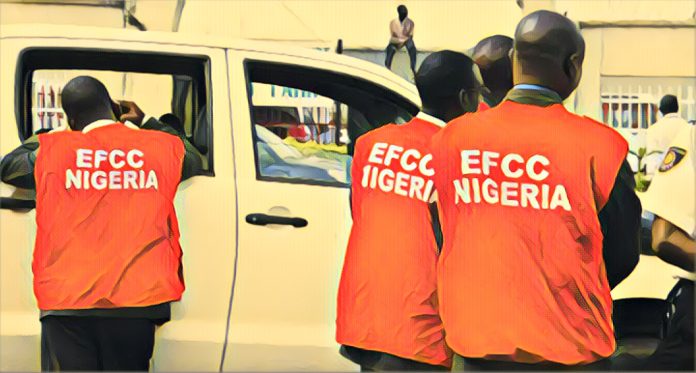The recent Economic and Financial Crimes Commission (EFCC) raid on Obafemi Awolowo University (OAU) students, described by an undergraduate as resembling an armed robbery, sheds light on a harrowing ordeal that demands closer scrutiny. Hafiz Junaid, a final-year student majoring in Computer Science and Mathematics, shares a firsthand account of the chaotic night when EFCC operatives stormed their hostels, leaving students traumatized and questioning the methods employed by the law enforcement agency.
In an exclusive interview with Junaid, he recounts the disturbing events of November 1, 2023. The student describes being abruptly awakened at 2 am by what he perceived as a violent intrusion. The loud bangs on doors, screams, and a general sense of chaos led him to believe that armed robbers were attacking. The subsequent revelation that the intruders were EFCC operatives, brandishing weapons and donned in red jackets, left Junaid in shock.
Junaid’s attempt to escape the perceived danger resulted in unintended consequences, including damage to property and exposure to electric shocks. As he grappled with the confusion, EFCC operatives detained him and other students, subjecting them to harassment, verbal and physical abuse. The lack of clarity about the reasons for their arrest intensified the fear and trauma experienced by the students.
Upon arrival in Ibadan, the detained students faced further indignities, such as being made to sit barefoot in the sun for extended periods. The EFCC operatives reportedly took photographs of the students without any formal investigation, treating them like criminals. The ordeal, as narrated by Junaid, paints a distressing picture of a flawed operation that lacked transparency and adherence to due process.
Despite the reported seizure of luxury items during the raid, Junaid insists that the only item taken from him was his mobile phone. He emphasizes that he neither owns luxury cars nor participated in any criminal activities. The unjust and sudden arrest, combined with the subsequent release without clarification, has left Junaid and others traumatized and questioning the actions of the EFCC.
In response to these events, OAU students rallied to protest the arrests, drawing attention to what they perceived as unjust actions by the EFCC. The swift response and advocacy by the student community played a crucial role in highlighting the incident and applying pressure for the release of the innocent students.
Looking ahead, Junaid expresses a desire for the EFCC to clear their names publicly and rectify the damage done to their reputations. He calls for accountability and justice, emphasizing that innocent individuals should not bear the brunt of unwarranted actions. As the students recover from this traumatic experience, there is hope for a thorough investigation and proper legal recourse to ensure such incidents are not repeated.
Source: [The Punch]



